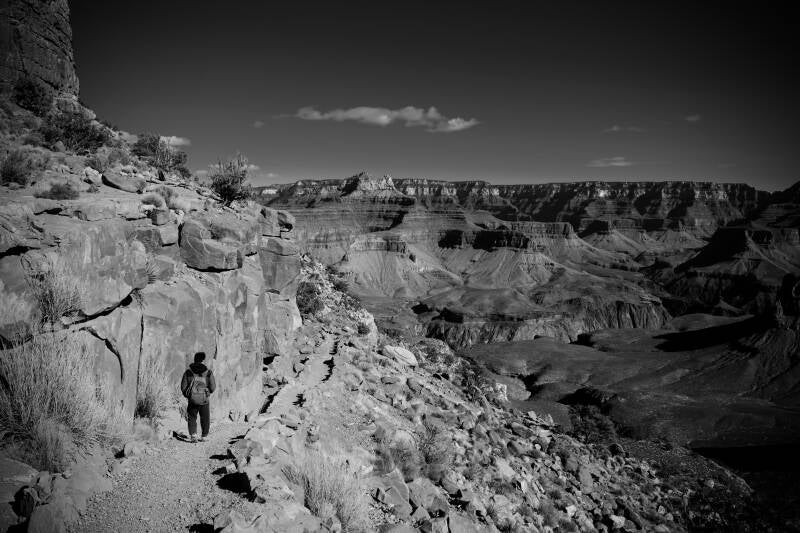For years, I lived for travel. In fact, I've been travelling non-stop for 5 years now. I loved waking up somewhere new, planning my next adventure, and throwing myself into unfamiliar cultures. But recently, I noticed something shifting. Instead of feeling excited every time I packed my backpack, I felt tired, sometimes even anxious. The constant movement, new cities every few days, crowded hostels, and the effort of adapting over and over again started to wear me down.
And yes, I know I’m extremely privileged to be able to travel this much, and I don’t take that for granted, but privilege doesn’t cancel out burnout.
If you’ve been travelling long-term, full-time, or frequently for work, there’s a good chance you’ve felt this too.
And let me tell you: this doesn’t mean you’ve fallen out of love with travel. It means you’re human.
In this post, I want to break down why this happens and how you can keep traveling in a way that feels exciting, sustainable, and fulfilling, instead of draining.

The Reality: Long-Term Travel Fatigue Is Completely Normal
We often romanticise the idea of being constantly on the move, jumping from place to place, meeting new people, living out of a backpack. It sounds like freedom. And at first, it is. But over time, something else sets in: emotional and mental fatigue.
Travel requires continuous adaptation:
-
New environment every few days
-
New beds, new temperatures, new noises
-
New people in hostels
-
New etiquette, new food, new public transport
-
New routines that never quite stick
This constant resetting drains your energy, even if you love what you’re doing. It’s not a sign of getting older, it’s a sign of doing something incredibly taxing for an extended period.
Travel Is Allowed to Evolve as You Grow
There’s a big difference between how travel feels at 21 versus 28. When you’re younger, the chaos of travel feels exciting. But as you age, even by a few years, your needs shift. Comfort matters more. Privacy matters more. Routine matters more.
This doesn’t mean you’re “too old” for hostels or backpacking. It means your version of traveling is changing, and that’s a good thing.
What used to energise you might now overwhelm you, because you’ve evolved, and your lifestyle should evolve with you.

How to Prevent Travel From Becoming Exhausting
Below are practical, realistic strategies to help you fall back in love with travel while avoiding burnout.
1. Switch From “Fast Travel” to “Slow Travel”
Instead of hopping every two or three days, try staying 1–2 weeks in each destination, Or even a full month if your schedule allows
Slow travel allows you to:
-
Settle into a rhythm
-
Learn real life in a place
-
Avoid decision fatigue
-
Explore without pressure
You’ll see more meaningfully while feeling less exhausted.
2. Treat Each Location as a Temporary Home Base
This mindset shift is huge. When you arrive somewhere new:
-
Pick a café you like
-
Find a walking route
-
Establish a morning routine
-
Unpack your bag instead of living out of it
These small habits give your mind a sense of stability even while you’re moving.

3. Travel in “Seasons”: Exploration, Rest, Repeat
Think of your year like chapters:
-
A period of heavy exploration
-
A period of grounding and rest
-
Repeat
Just like athletes take recovery days, travellers need “off-seasons” too. After a period of fast movement, choose a place to stay still for a while. This could be a family home, a partner’s place, or a calm city where you rent a room for a bit.
4. Allow Yourself More Comfort Without Feeling Guilty
You don’t need to prove anything by sleeping in a 16-bed dorm or taking the cheapest option every time.
It’s okay to:
-
Book a private hostel room when your budget allows
-
Stay in a budget hotel
-
Splurge on a quiet Airbnb for a few nights
-
Choose a less chaotic neighbourhood
Comfort gives you energy. Energy allows you to explore again.

5. Reduce Pressure to “See Everything”
One of the biggest sources of travel fatigue is the idea that you have to squeeze every attraction into your limited time. But the truth is: you enjoy more when you try to do less.
Focus on:
-
Slow walks
-
Meaningful experiences
-
Local calm spots
-
The places that truly interest you
It’s better to love 2 things than rush through 10.
6. Build Tiny Routines That Travel With You
No matter where you are, anchor yourself with small rituals:
-
A morning tea or coffee
-
Journaling
-
A 20–30 minute walk
-
Stretching or yoga
-
A nightly call with someone close
These routines make your life feel familiar even when everything else is new.

7. Accept That Not Every Day Has to Be an Adventure
Some days, traveling means doing laundry, watching Netflix, people-watching at a café, or resting in bed. That’s still part of the journey.
You don’t lose your “traveller” card by taking breaks.
Your Love for Travel Isn’t Gone, It’s Changing
Feeling less excited doesn’t mean you’re done with travel. It means you’ve reached a stage where:
-
Comfort matters
-
Stability matters
-
Your mental health matters
-
Your energy matters
Travel isn’t something you have to chase endlessly. It’s something you can build into your life in a balanced way. And with jobs that require moving every few months, these small strategies will help you keep each destination feeling fresh instead of overwhelming.
You’re not losing your spark, you’re just tired, and tiredness passes.
What stays is your curiosity, your love for new places, and your desire to explore the world in a deeper, more sustainable way.

Final Thoughts
Long-term travel is one of the most enriching ways to live, but it’s also one of the most emotionally demanding. If you’re feeling burnt out, you’re not alone. And you’re certainly not “too old” or “less adventurous.” You’re simply growing into a different version of yourself, one who deserves comfort, stability, and rest just as much as adventure.
Slow down. Choose depth over speed. Let travel evolve with you.
You’ll find your excitement again, and maybe even discover a more meaningful way to explore the world.


Add comment
Comments